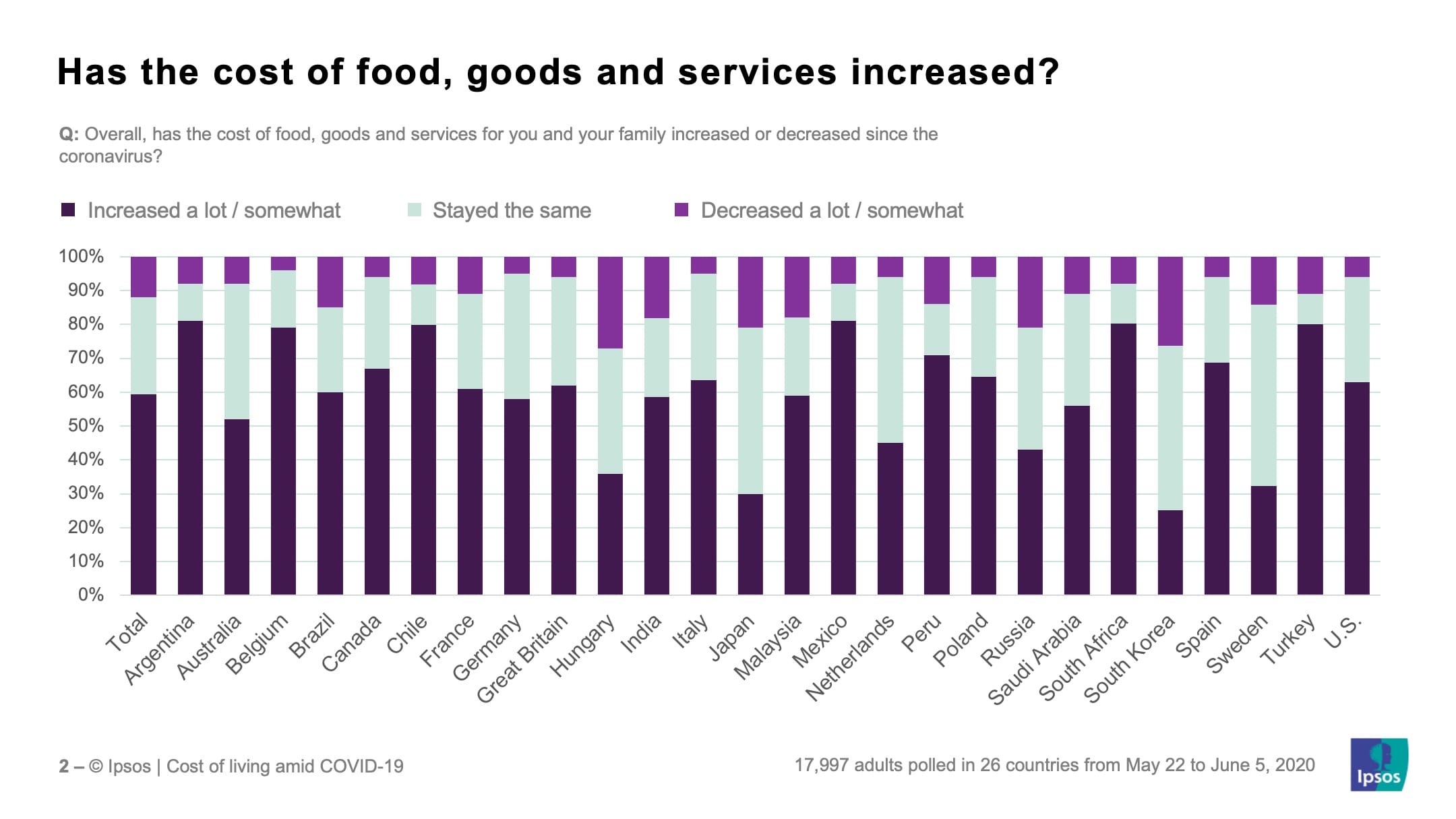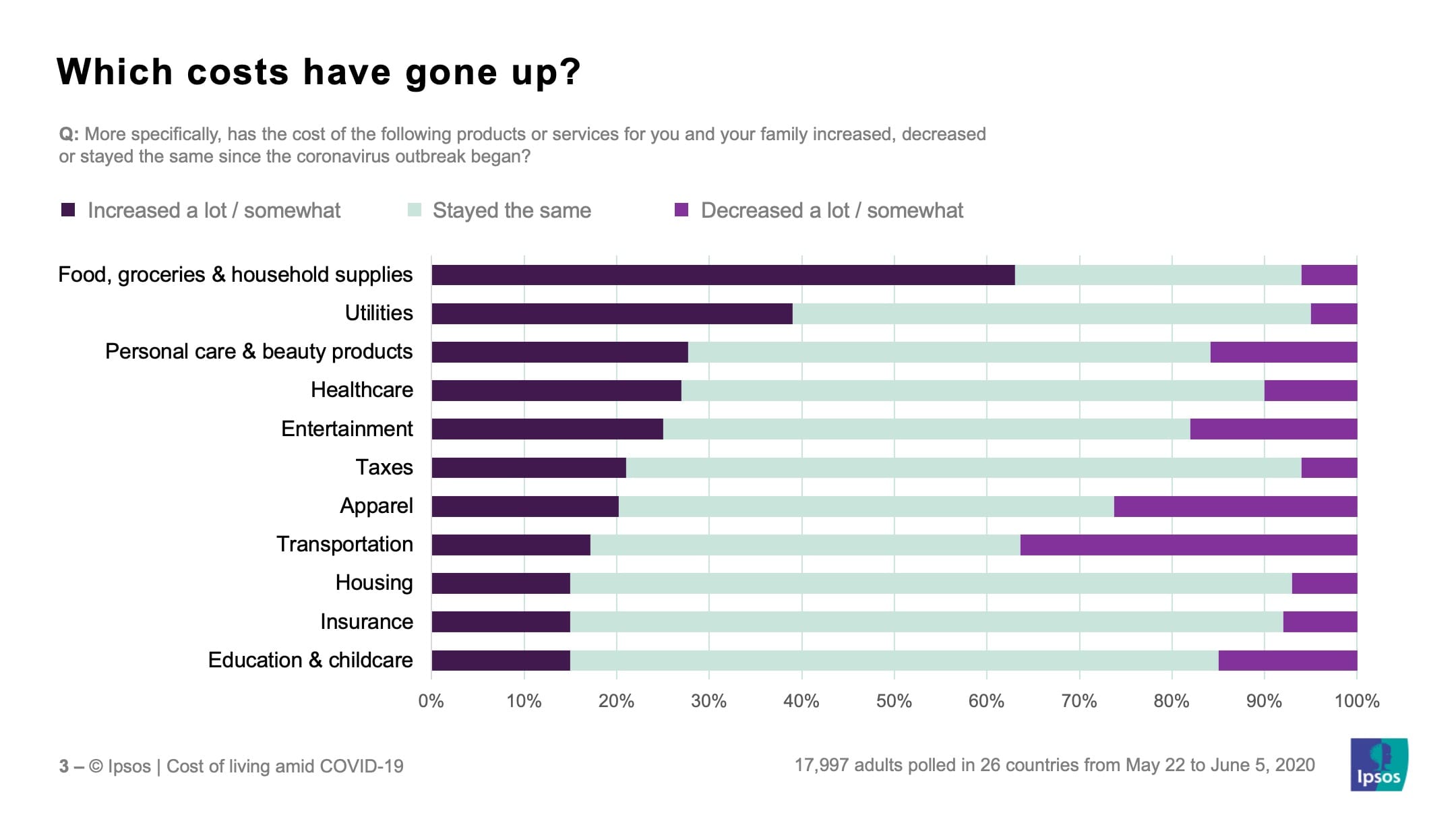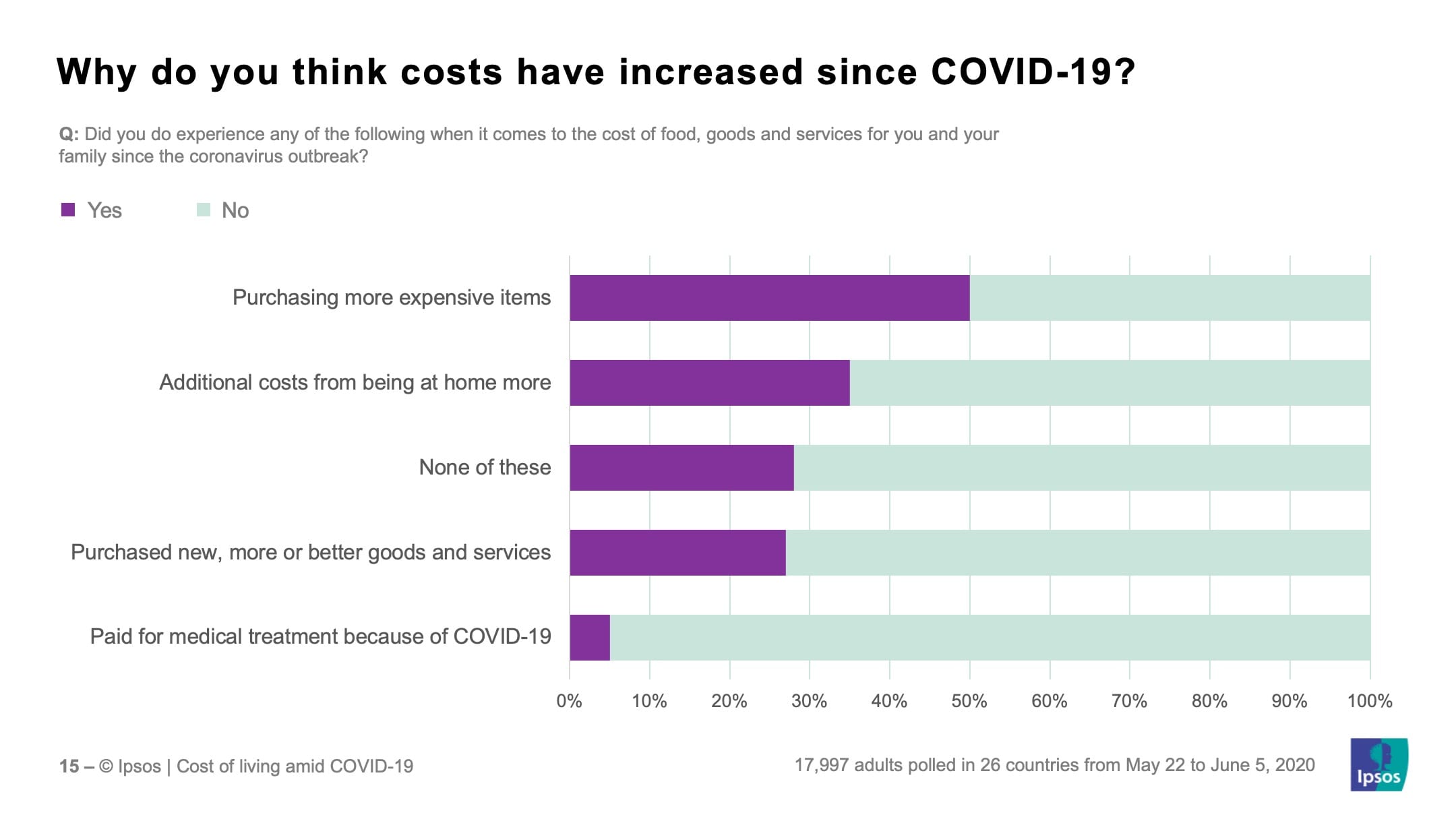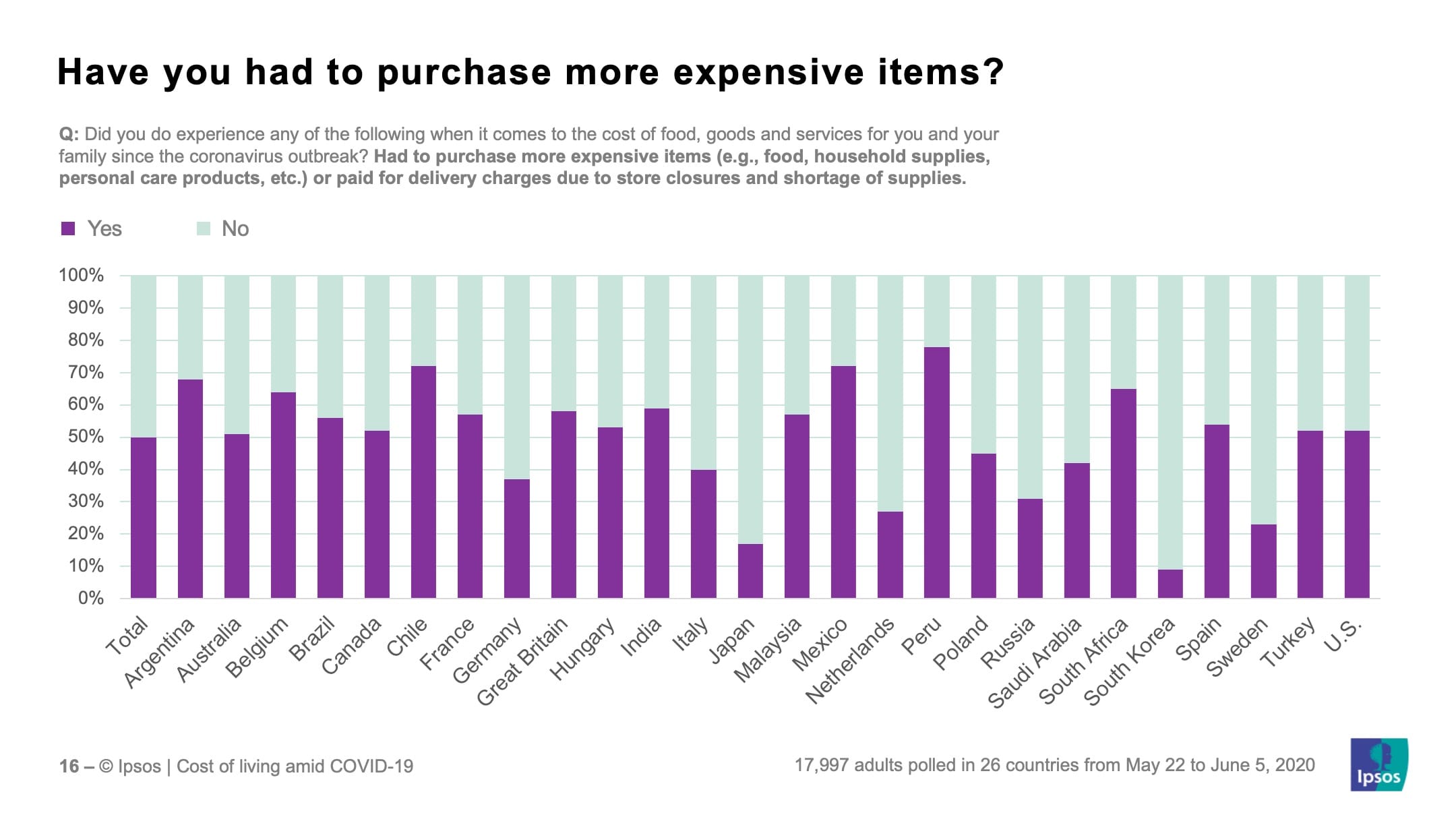Cost of living: Majority say cost of food, goods and services have increased since COVID-19 began
A majority of people in 26 countries say the overall cost of food, goods and services have increased for them and their families since the coronavirus outbreak began, according to the latest global survey by Ipsos.
Three in five people (60%) in a poll of nearly 18,000 conducted from May 22 to June 5 say costs have increased somewhat or a lot with those in Argentina, South Africa and Mexico (81%), Turkey (80%), Chile and Belgium (79%) at the top of the list.
On the other end, more than a quarter of people in Hungary (27%) and South Korea (26%) say costs have decreased somewhat or a lot since the outbreak began, followed by Japan and Russia (21%).
Meanwhile, almost a third of people in all countries (29%) say costs have stayed the same with a majority agreeing with this in Sweden (53%), where restrictive lockdown measures were not implemented. Almost half of people in the Netherlands and Japan (49%) and South Korea (48%) also agree.

By region, people in Latin America are most likely to say costs have increased at 75%, followed by those in the Middle East and Africa at 72%.
What’s increased, stayed the same or decreased?
Almost two-thirds of people globally (63%) said the cost of food, groceries and household supplies increased since the COVID-19 outbreak began – highlighting the only majority average out of the 11 cost categories presented.
This sentiment is highest in emerging markets of Argentina and Turkey (86%), Chile, Mexico and South Africa (80%).
Utility bills, which include water, electricity, heating, air conditioning, phone/TV/internet services, is the second biggest cost people said increased at an average of 39%. Those in Turkey (74%), Chile (68%), and Malaysia (65%) are most likely to cite this.
Other costs that a significant portion of people said increased is for personal care and body products and services (28%), followed by healthcare (27%), and entertainment (25%) products and services.

In terms of where costs remain unchanged, more than three in four people (78%) said housing costs such as rent and mortgage payments stayed the same, followed by insurance at 77% and taxes at 73%. Another major expenditure where 70% of people said they are not paying more or less is education and childcare.
While costs overall have either increased or stayed the same, there are some areas where a significant portion of people say costs have decreased.
More than a third (36%) said transportation such as using vehicles, buses, trains and fuel costs have decreased – likely a result of less travel as restrictions forced people to work from home. A majority of people in Turkey (56%) cited this, followed by Malaysia (52%), Great Britain (51%) and Canada (50%).
More than a quarter (26%) said the cost of apparel such as clothing, shoes and accessories decreased – reflecting fewer purchases as malls and other retail outlets closed brick and mortar stores. People in South Korea and Turkey (46%) are most likely to agree with this.
Why costs increased for people
In terms of why people think costs increased for them – half (50%) said it is because they had to purchase more expensive items or pay delivery charges due to store closures and a shortage of supplies since COVID-19. But at the same time, an equal proportion of people globally disagree.

This sentiment is highest in South America with respondents in Peru (78%), Chile (72%) and Argentina (68%). Those in Asian countries of South Korea (91%) and Japan (83%) are most likely to say this wasn’t the case for them, followed by respondents in Sweden (77%) and the Netherlands (73%).

Meanwhile, more than a third (35%) of people said they incurred new or additional costs such as larger utility bills due to spending more time at home or working from home with respondents in Turkey (65%) and Malaysia (63%) in most agreement. People in European countries of the Netherlands (84%), Sweden and France (83%), and Belgium (80%) are most likely to disagree.
In terms of spending more to cope with effects of isolation, more than a quarter globally (27%) said they purchased new, more or better goods and services for relief from lockdowns and social distancing.
This sentiment is highest in Peru (45%), Turkey (37%), Chile (35%), Argentina (34%), Saudi Arabia and Canada (32%). People in Europe were most likely to disagree with Hungary (89%), Germany (86%) and Russia (82%) at the top.
Lastly, most people (95%) said they didn’t have to pay for medical treatment because of COVID-19, while more than a quarter (28%) said they have not experienced any of these factors when it came to purchasing food, goods and services since the outbreak began.



